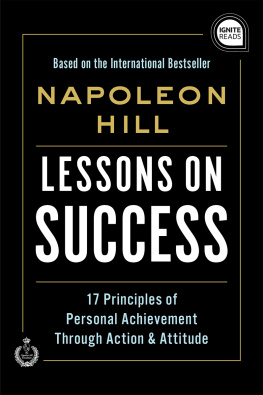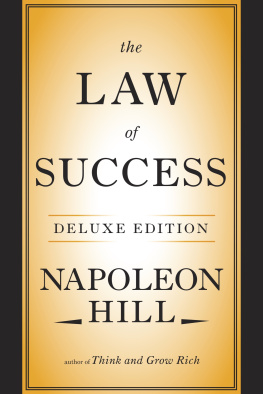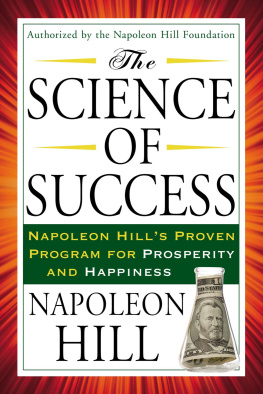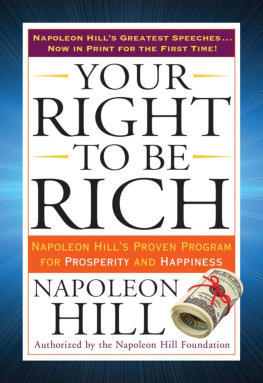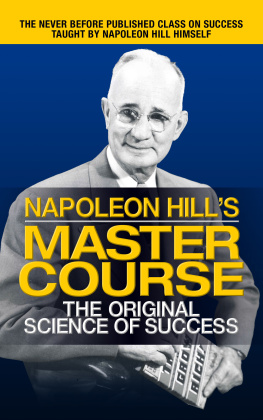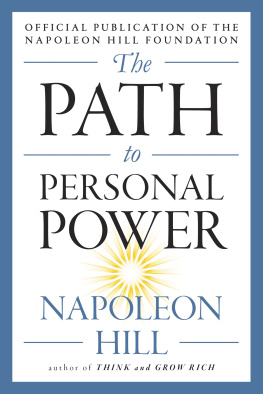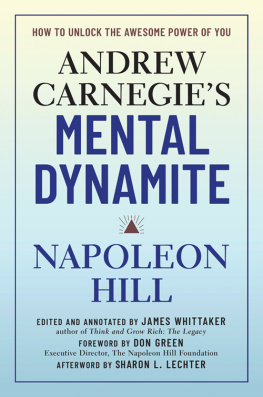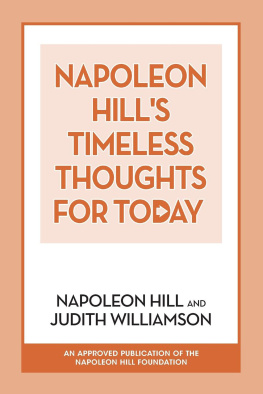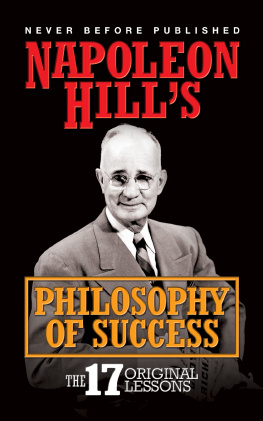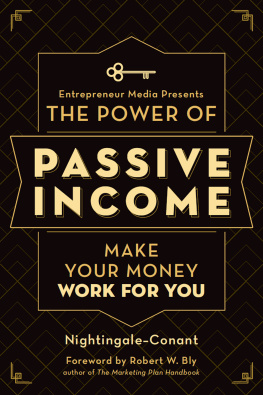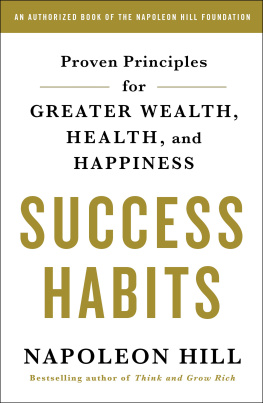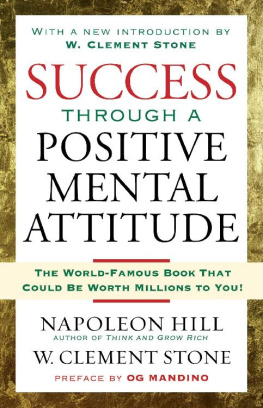It has always been my belief that a man should do his best, regardless of how much he receives for his services or the number of people he may be serving or the class of people served.
In my position as executive director of the Napoleon Hill Foundation, I have often been asked, Why should a person need more than one good book on success? The answer to that question can be shown by recalling our early learning. We were taught our ABCs by repeating them through games and stories or simply reciting them until they became a part of our memory. For example, each of us probably learned our multiplication tables in the same manner. Each set of numbers was repeated so many times that if asked what eight times eight equals, the answer sixty-four would be recalled with very little effort. Another excellent reason to continue exposure to inspirational material, whether it be a self-help magazine, book, audio, video, or seminar, is to be among the estimated 5 percent who are truly successful.
You will likely discover that your desires will change markedly as you advance in years. As a young person, it is normal to be concerned with accomplishments to provide housing, education, and everyday needs and wants. Most of your efforts are directed at obtaining security. Though you will no doubt contribute to your church or favorite charities, they will not be your primary focus.
While the principles of success philosophy do not change, it will become evident that your desire to make a difference does. It will become normal to put more energy to helping those in the world who are less fortunate.
Napoleon Hill knew the keys to success and shared that wisdom with millions. As you read the following pages, youll discover the principles you need to follow to be among the truly successful and discover ways that application in your life will help you reach your goals.
In the final analysis, all successful people will be remembered more for what they gave rather than what they got in life.
Don M. Green
Introduction
The ladder of success is never crowded at the top.
Napoleon Hill
Over one hundred years ago, a fortuitous meeting in Pittsburgh completely changed the life of one young man and ushered in a new philosophy of personal achievement that has served as the foundation of the success movement for the last century.
That young man was Napoleon Hill, a young reporter from Virginia. That meeting in the fall of 1908 was, as he described it, when the hand of destiny reached out.
Hill had been granted an interview with Andrew Carnegie, the steel magnate who was then the worlds richest man. Hill dove into the questioning, asking, Mr. Carnegie, to what do you attribute your phenomenal success?
The industrialist, then seventy-three, opened up quickly and, with wit and his unrivaled gift for anecdote, began to relate the stories of his achievements. Hill could hardly keep up his shorthand notes when Carnegie then began to expound on his and others theories of personal achievement.
Carnegie lamented, Its a shame that each new generation must find the way to success by trial and error when the principles really are clear-cut.
On the third day of the interview, Carnegie offered him the opportunity to organize the worlds first practical philosophy of individual achievement. I will introduce you to men who can and will collaborate with you in its organization. Do you want the opportunity, and will you follow through if it is given to you?
Hill blurted out with characteristic enthusiasm, Yes! Ill undertake the job, and Ill finish it.
Carnegie withdrew a stopwatch and told Hill it had taken him exactly twenty-nine seconds to respond. Carnegie told him, The offer would have been withdrawn after sixty seconds. It has been my experience that a man who cannot reach a decision promptly cannot be depended on to carry through any decision he may make. I have also discovered that most who reach decisions promptly usually have the capacity to move with definiteness of purpose in other circumstances.
Very well, said Carnegie. You have one of the two important qualities that will be needed by the man who organizes the philosophy I have described. Now I will learn whether or not you have the second. If I give you this opportunity, are you willing to devote twenty years of your time to research the causes of success and failure without pay, earning your own living as you go along?
Hill was stunned. He had assumed that Carnegie would subsidize him from his enormous fortune.
It is not unwillingness to supply the money, Carnegie explained. It is my desire to know if you have in you the natural capacity to go the extra mile, that is, to render service before trying to collect for it.
Napoleon Hill met Carnegies second test. He would go on to write the American philosophy of personal achievement.
For the next twenty years, Hill would interview such men as Thomas Edison, Henry Ford, Alexander Graham Bell, King Gillette, Theodore Roosevelt, John Rockefeller, and others. In 1928, he published The Law of Success , a compilation of success secrets from the greatest achievers of that time that, for the first time in the history of the world, revealed the true philosophy upon which all personal success is built.
From those teachings would come, nine years later, Think and Grow Rich , considered by many to be the greatest success book of all time. It offered essential principles for improving ones health, wealth, and success. While readers today will note that the language of the book reflects mid-twentieth-century America, the principles expounded on for a successful life remain as powerful and pertinent today as they did more than eighty years ago.

